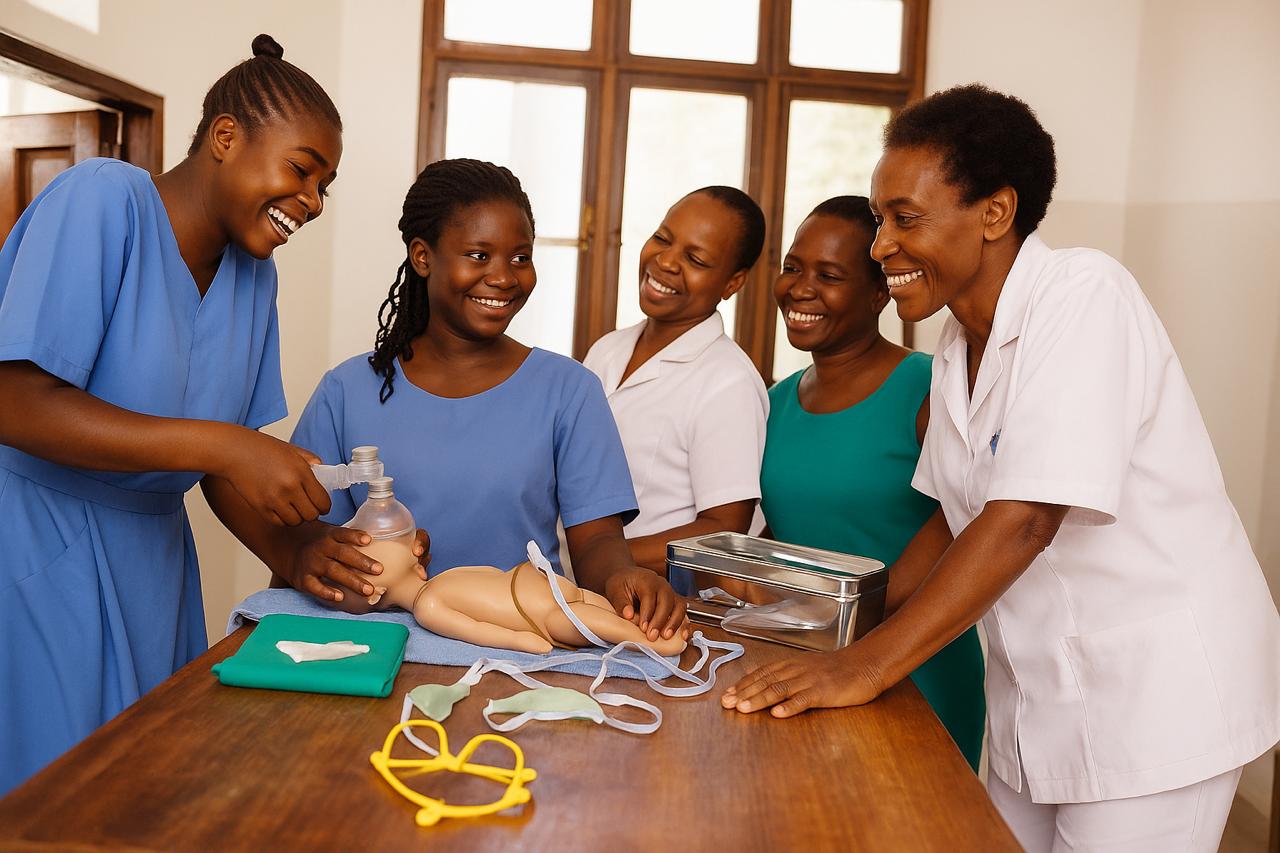
Principal Investigator: Dr. Sally Mtenga
Project leader/ Coordinator: Irene Mashasi
Project Administrator: Pamela Sao
Funding Partner: The Secretary of State for Health and Social Care through the University of the Western Cape (UWC)
Start date: March 1, 2025
End date: Feb. 28, 2030

IMARISHA Project: Addressing gendered workplace violence
The IMARISHA Project is a multi-country initiative aimed at addressing gendered violence faced by frontline health workers in primary healthcare (PHC) facilities. Funded by The Secretary of State for Health and Social Care through the University of the Western Cape (UWC), the project will run for over five years starting in March 2025 to Februay 2030.
In Tanzania, the Ifakara Health Institute is leading implementation, working alongside partner institutions from Burkina Faso (Institut National de Santé Publique and RESADE), South Africa (University of the Western Cape – School of Public Health), and Malaysia (United Nations University). Ifakara senior social scientist Dr. Sally Mtenga is spearheading the project as the Principal Investigator.
Why Addressing Gendered Workplace Violence Matters?
Despite global commitments to Universal Health Coverage (UHC), gender-based workplace violence remains a critical and under-addressed barrier. While violence affects both male and female health workers, women face the greatest burden due to underlying power dynamics.
This violence, often invisible and under-researched, negatively affects health workers’ motivation, performance, and wellbeing, ultimately undermining the quality of healthcare services. Unfortunately, efforts to address gender-based violence have largely focused on patients, particularly women and children, but the needs and safety of healthcare providers themselves have received limited attention.
Project Objectives
The IMARISHA Project seeks to conduct policy-relevant research to address conceptual, empirical, and intervention gaps related to gendered workplace violence in PHC systems across Tanzania, Burkina Faso, and South Africa.
It also aims to generate robust evidence from low- and middle-income countries (LMICs) to drive global action on workplace violence against PHC workers. The project will also focus on co-developing context-specific interventions with community stakeholders to prevent and address systemic and gendered violence faced by PHC workers in each country.
These interventions will be embedded with systems of workplace accountability to ensure sustainable protection and support for PHC workers. By addressing both the symptoms and root causes of gendered violence in health settings, the project hopes to influence national and global health policy reforms.
Implementation in Tanzania
In Tanzania, research activities will be carried out in five regions: Morogoro (which will serve as the case study site for intervention co-creation), while surveys will be conducted in Tabora, Musoma, Mbeya, and Kilimanjaro for broader data collection.
Participants in the study will include healthcare workers, community health workers (CHWs), PHC facility committee members, and policy and decision-makers at national and sub-national levels.
IMARISHA is a timely initiative that offers stakeholders in health, gender equity, and workforce development an opportunity to be part of a transformative approach to workplace safety in health systems. Ultimately, this project aims to ensure that frontline health workers—especially women—are safe, empowered, and supported in their roles as the backbone of PHC and the broader healthcare system.
Photo courtesy of GIZ Tanzania
